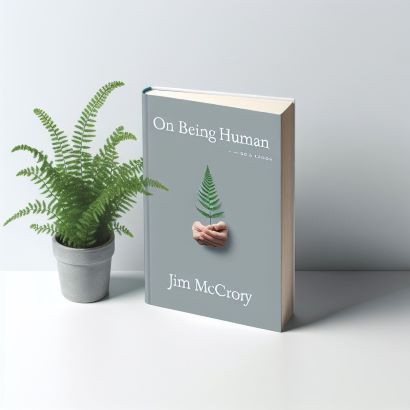
Where the Small Names Sleep
I walked through the Glasgow Necropolis as I often have. It was one of those bright Scottish mornings that softens even the hardest thoughts. The Necropolis, that city of the dead perched above Mother Glasgow; the city of the living, where space not only for memory but for quiet conversation with time itself exists.
As I made my way among the gravestones, I found myself counting years, not just my own sixty plus but those etched into stone: the tiny, abbreviated lifespans of children lost long ago in a Dickensian age to epidemics like cholera, diphtheria, typhus. Names barely had time to settle and establish into the world before they were carved in stones suggesting they were here.
It’s a strange thing to be old in a place filled with the young who died. I felt not so much survivor’s guilt as survivor’s wonder. I’ve had decades of travel, of reading, of walking beaches at sundown, of writing, of grieving and healing, of faith evaluated and restored. What would any one of these children have become with even half of my years?
My cancer, in that moment, seemed less like an ending and more like a milestone. I don’t know how many more years are allotted to me, but I know now how many I’ve already been given, and I know what a privilege it is to reach an age where you look both forward and back.
The graves made me think of God’s purpose—not as a tidy doctrine, but as a question folded into every name worn smooth by wind, moss, and rain. What becomes of children who never had a chance to choose faith, to assess goodness, to wrestle with meaning? Where are they in the great scheme of things?
Jesus once said, “Let the little children come to me... for the kingdom of heaven belongs to such as these.” I must believe that children taken early are held in a mercy deeper than we can grasp. They are not forgotten; they are not lost to God . If anything, it is we who are still lost, walking among headstones trying to make sense of the living and the dead.
There’s a sobering democracy in cemeteries. All names are equal here, whether child or elder, rich, or poor, known, or unknown. We all close our eyes and rest with our forebears. And yet, those of us still walking have something the dead do not: time. Time to reflect, to forgive, to change. Time to be grateful. My cancer has made me aware of time—not just its scarcity, but its richness.
So, I keep walking, not just through the Necropolis, but through each day, carrying with me the invisible company of children who never saw their coming-of-age birthdays or perceived the invisible grace of a God.
Image generated with the assistance of Microsoft Copilot

